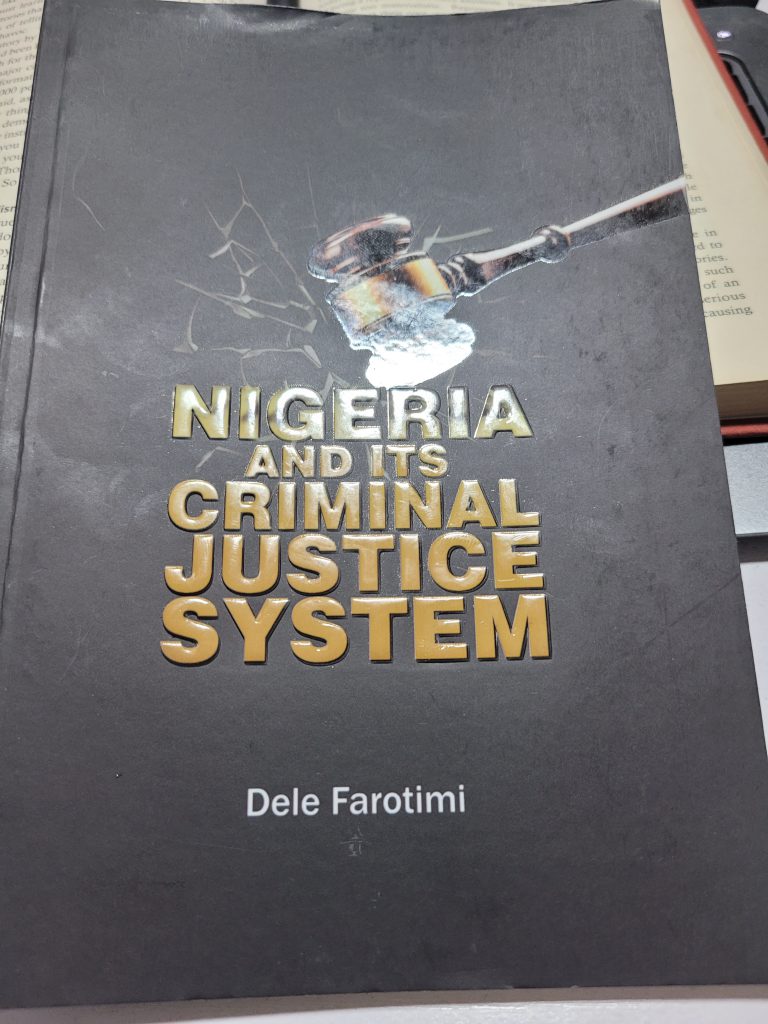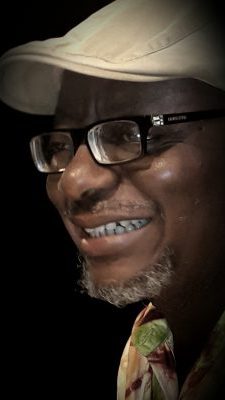By Olayinka Oyegbile
(A review of Dele Farotimi’s Nigeria and its Criminal Justice System, Dele Farotimi Publishers, Lagos, 2024)
Courage is a virtue. It is what every human being claims to possess. However, when the need arises to display this raw human virtue, many have woefully failed. It is easy to claim to have it but it is not easy to display when required because it often has unfavourable consequences. It is based on this that I am approaching Dele Farotimi’s controversial book (more of a pamphlet, actually). It is a small book that has ruffled feathers and I can safely predict is going to ruffle more by the time the others that have been named in the book get to read it.
The barely 104-page book has become an international sensation that a court had to give a verdict to stop its further circulation. And as it is with any banned book in the world, rather than distract attention of readers from it, many who would have hitherto not read the book or have not heard of it would thus be attracted and thus make the book more in demand. In 1988 or thereabout, it happened to Salman Rushdie’s The Satanic Verses when the writer was given a fatwa by Iran’s then spiritual leader. Many today have the book on their shelf but have never read it. In the eighties in Nigeria, the future Nobel laureate’s book about his solitary confinement during the Nigeria civil war, The Man Died, got the same fame.
So, what is in Farotimi’s book that has made it so incendiary that he had to be bundled from Lagos across many kilometres and state boundaries to be tried in Ado-Ekiti? In all honesty, what the writer has written in this book is what you hear everyday in discussions and interactions with lawyers, police officials, journalists, accused, criminals and anyone who has had the opportunity to encounter Nigeria’s justice system.

Lawyers, both senior and junior and especially those they derisively referred to as “Baby lawyers” will confide in you many salacious stories about the country’s judicial system. It is now left for who will bell the cat, as the cliché goes. The Yoruba have an admonition which they always give when an argument ensues and an individual seems to want to spearhead a dangerous crusade. They caution “Ma jeki nwon fi ori e fo agbon”. Translated as “Don’t allow your head to be used to break a coconut.” What happens to such an individual? He, obviously would not partake in feasting on the coconut. He would have been dead or nursing head injuries while the coconut is being consumed.
Farotimi’s thesis in this rather slim book is strong and written in fiery language. It is an angry book that shows the frustration of a lawyer with our country’s judicial system which he believes has been captured and dominated by some powerful interests. No system, especially judicial can afford that. The judiciary is usually bandied as the last hope of the common man. But is this so? This is what Farotimi tried to expose in his book. The system has brutalized him and he feels that he has to take his case to the open and allow the justice of the open court of the readers to hear his side with the claim that, “The Nigerian judiciary is not the hope of the common man but is in truth, completely hopeless and unfit for purpose. Pretty much a mirror of everything Nigeria.” (p xvii)
The late Kanmi Osobu, the late Gani Fawehinmi, and others who were practitioners in the temple of justice in this country have said much. Those who are still alive and going in and out of our courts today are saying it. Farotimi continues, “When the rich are taken before the courts, it is almost always because some internecine warfare within the ranks of the privileged and when this happens, they have demonstrated an uncanny ability to find the capacity to exploit multiple ways of escaping the consequences of their actions. Corruption has become a special class of offences that is increasingly the exclusive reserve of the rich and powerful…. The poor on the other hand is never able to catch a break. There are persons in our prisons that have absolutely nothing with being there and it has become the standard fare that justice is for the rich whilst judgements are often for the poor.” (p xix). Hasn’t this been said many times before about our judicial system?
As a book reviewer, I find myself constrained in doing a comprehensive analysis of some of the details contained in this little but powerful book that has been able to shake the Nigerian judicial and legal systems in such a way. I am a journalist not a lawyer like Farotimi, my limited knowledge of law (media law), which is a compulsory course for all intending journalists is the only thing I know. However, Farotimi as a lawyer must have known what he is up to with his “name and shame” approach in this book. How he intends to present the evidence he has (if any) before some of those he has accused directly or indirectly in this book is another matter entirely.
Going back to my opening statement, Farotimi has in this slim book displayed courage which some of the many senior lawyers I have interacted with over the years have failed to demonstrate, at least publicly. They are vociferous and penchant in their criticism when you meet them out of the klieg lights, but subdued when in the open. Farotimi’s courage reminds me of Fela’s charge about “My people dey fear too much, we fear to fight for justice, we fear to fight for liberty, I no wan die, I get one child, mama dey for house….etc.” Who wan die?
It is a book written in the heat of anger and since it is self-published, I guess he is his own editor or he refused to listen to an editor because of his conviction about what he thinks is the unvarnished truth contained there.
Will Farotimi walk out uninjured from the lion’s den? The answer is blowing in the wind.


